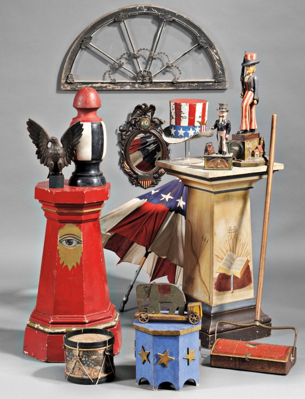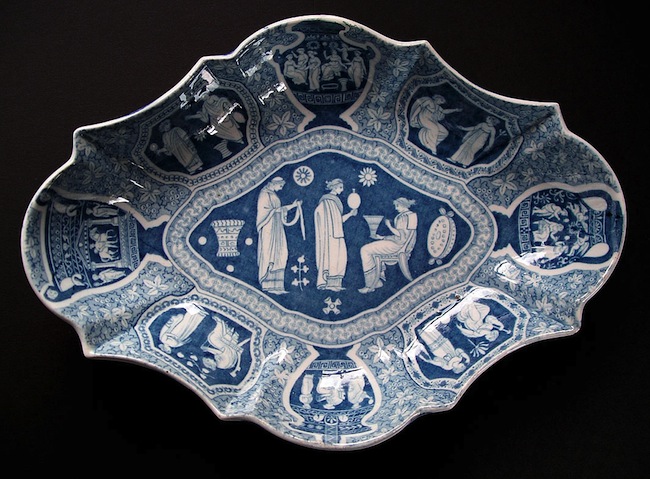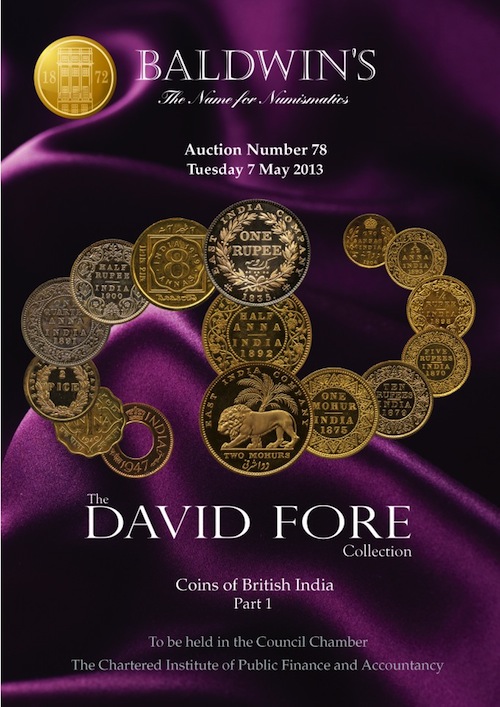Absent Bid also Leave A Bid On The Book
Bidders who can”t attend in person can authorise porters to bid for them, or leave written instructions with the auctioneer. Where interest in a particular lot is low, your Absent Bid may be used to open the bidding – something which won’t help you net a bargain! It”s always better to attend in person if you can. Or, instead of leaving postal or telephone bids, ask a porter or friend to bid for you – and share some of your savings or profits with them.
Absolute
Means that all lots are going to be sold without reserve. Amazing bargains are possible if the sale is poorly promoted or bad weather keeps attendance low.
`Against the Room’
Might be said by the auctioneer towards the end of a sale. Normally means a higher bid has been placed by an Absent Bidder – someone bidding by post or phone.
`Against You’
Means your previous bid has just been topped, and it’s your turn to bid. Said by the auctioneer when there are only 2 or 3 buyers still bidding.
Assessment also Guide Price,
Pre-sale Estimate or Est Price lots are expected to fetch on the day. Not always a good indicator of actual value or final hammer price. Might be expressed as a single figure, say C100, or in a range, such as £100-,C150. If no assessment is given, ask auction staff- they’ll often give you a good idea of what an item can be expected to fetch.
Auction
Public or postal sale at which goods are sold to the highest bidder. See also general auction, government auction and specialist auction.
Auctioneer
Person authorised to conduct the sale on behalf of the auction company. The auctioneer runs the auction, announcing the next lot, and then taking bids. They are responsible for the smooth running of the auction.
As Is
see also Caveat Emptor The auctioneer bears no responsibility for condition, errors, true age or accuracy of description. Often means that the auction company is uncertain or unwilling to commit to a specific description of a lot. Check all items thoroughly, seek expert advice, and prepare to take a chance.
Bid
Offer, the process of offering a certain price for a certain lot.
Bidder
Person offering to buy an item at auction, a potential buyer.
Bids Off-the-Wall Where auctioneer makes up fake bids (`off the wall’) to push up the price.These fake bids force parties to bid against themselves, and so raises the price in the seller’s favour. Stand at the back of the room where you can see all the other bidders and know exactly what’s going on. That way, you”ll avoid falling for this dishonest – but thankfully rare – practice.
Buyer’s Premium
Payment over and above price offered for lots, normally expressed as percentage of knock down price – it’s, the auctioneers’ commission. VAT may also be added. Calculate premium and taxes before deciding what to bid, because any `bargains’ will be affected by these extra costs. Most auctions take conunission from buyers and sellers.
Catalogue
Booklet or listing describing the lots for sale. Will give reserve price and pre-sale estimates, rules and conditions, bidding forms etc.
Caveat Emptor meaning Let the Buyer Beware
Bidders bear responsibility for checking the condition, quality and authenticity of goods. Check all items, details of ownership and sale conditions before bidding – you’ll have no comeback later if goods are not as described or defective in some way.
Conditions of Sale also Terms & Conditions
All auctions must display their Conditions of Sale – rules and regulations – either in their catalogue or auction room. Conditions are roughly similar between auction companies, only the wording differs. Conditions cover the responsibilities and legal rights of auctioneers, bidders, and vendors. Tells you everything you need to know about the law regarding descriptions and bidding practices, payment terms, transfer of ownership etc. Read very carefully – you’re legally bound by them.
Discretion Buyer
Person nominated to bid for and accept goods on behalf of absent bidder. Often used to maintain anonymity of buyer.
Gavel
Auctioneer’s hammer. Fall announces sale of goods.
General Auction
Many general auctions will offer bulk bargains, surplus stock and slight seconds, household effects, second-user goods, estate sales etc, often in nixed lots. A wide range of goods, with little specialist interest – but remember to hunt out miracle finds here!
`Going, Going, Gone!’ or `Going once, Going twice, Sold to. .
Auctioneer announces the last chance to bid -just before the fall of the hammer and the sale of goods.
Government Auction also Police, Bankrupt, or Liquidation Auction
Not actually run by the Government. The term describes sales conducted on behalf of government authorities, for example: police, Customs and Excise, county courts, Official Receiver. Agencies tender for the right to act on behalf of these authorities. Can offer the most incredible bargains.
Hammer Price see also Realisation
Price at which lot is marked down to the highest bidder.
Inspection also Viewing
Most auctions allow pre-sale inspection – viewing – of goods. The time when actual and prospective bidders can inspect lots and decide whether to bid and to what price. Postal-only auctions, of course, can’t do this – but most offer photographs of goods for sale.
Knock Down
Moment ownership passes from vendor to buyer. Describes the hammer falling to indicate transfer of ownership.
Lot
Unit offered for sale at auction. Can be one or several items – for example; book or library of books. Lots are described by a reference number, regardless of contents.
Mixed Lots
Many very different items, all bundled together and offered as a single lot. Always worth digging through – especially if you’re looking for a miracle find. But take note: Some unscrupulous auction houses might swap items from one lot to another – in an attempt to raise the price of both.
Mock Auction
Illegal sale, masquerading as auction, designed to sell wrongly described, forged, counterfeit or worthless goods. Tell-tale sign to look out for is stooges mingling in audience, bidding furiously, inciting others to bid against them. Arrive early, see who’s talking to the auctioneers. Again, stand at the back to spot phoney bids.
On The Phone
Most auction companies allow bids to be entered by phone and placed by auctioneer, staff or porters.
Opening Bid
The first bid, suggested by auctioneer or offered by personal or telephone bidder. Don’t accept the auctioneer’s suggested opening bid. Often the opening bid drops significantly before it’s accepted, because no-one wants to pay the initial suggestion. Many lots sell below auctioneer’s opening bid, especially when attendance/interest is low.
Paddle
Card or racket with buyer’s registration number on it. Use it to attract the auctioneer’s attention when bidding.
Panic Button
Someone in the audience distracts and prevents another buyer from bidding. Usually done by telling bidder that the item is in terrible condition or very over-priced. By the time the victim realises what’s happening, the lot may have been sold – to either the perpetrator or an accomplice.
Passed also Unsold Lot which remains unsold at fall of auctioneer’s hammer.
Podium
Auctioneer’s seating/working area, normally above floor level for a better view.
Porter
Auctioneer’s helper, often wearing overalls. Best person to ask about price estimates & reserves, realisations, auction procedures, help with removing goods.
Postal Auction
Auction takes place by post, from viewing to bidding, to hammer going down. Some allow restricted viewing prior to sale, others offer photocopy or photographed viewing of lots.
Public Auction
Bidders attend in person, the classic `auction scene’. Sometimes postal bidding is allowed also.
Private Treaty
Indicates lots have already been sold privately, and so won’t be offered at the auction.
Realisation see also Hammer Price
The actual price which an item is sold for, the price which is `real’ at that auction.
Register
Visitors and potential bidders are requested to register before attending to bid – this helps the auction company determine likely attendance figures, and whether it’s worth running the auction or not. Most auctions give you a paddle or bid number which you hold up to announce your bids. This makes it easier for the auctioneer to spot bidders – and means you don’t have to worry about sneezing, blinking or nodding your head and having goods marked down to you! ,
Reserve Price sometimes Minimum
The very lowest price which the seller will accept.
Ring
Where parties interested in specific lots agree not to bid against one another in an attempt to keep prices low. After the sale, parties unite and distribute items on a mini-auction or pre-agreed basis.
Sellers Premium
Commission charged by an auction house for selling you goods.
Shill
Accomplice of seller or auction company who places false bids to force prices higher. The process is illegal and frowned on by all respectable auction companies.
Specialist Auction
Deals in selected items, say antiques and fine art, property or stamps. Best place to sell more valuable goods, because experts who know about an item will pay more than someone at general auction.
Storage
Price charged for storing items before you collect them. Check in the auction house’s Terms & Conditions to see how long you have to pick up your goods.
Title
Ownership of goods. Legal term, with the same meaning that `deeds’ has for housebuyers.
Upset
Term normally encountered at residential or commercial property auctions. Applies to buildings re-possessed, where Upset is the lowest acceptable price, the reserve.
Valuation
Auction house’s assessment of what an item will sell for.The probable value in the auction house’s opinion.
Vendor
Seller.
Without Reserve
Goods will be marked down to the highest offer – whatever the valuation. The Vendor has not set a minimum price.




















